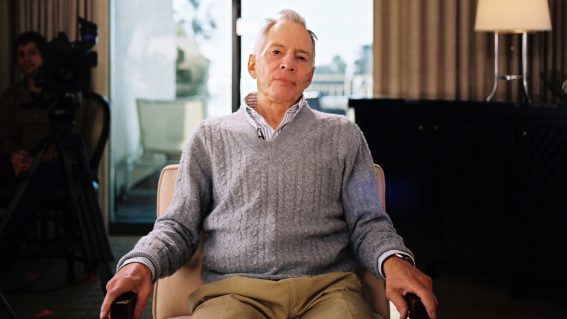Manifesto review: Cate Blanchett is utterly extraordinary

“Manifesto” is another way of saying “mission statement” or “declaration of intent.” Not the sort of thing you expect a Christian to utter around the dinner table, eyes closed, as they give thanks. If a manifesto is delivered in the form of a prayer, is it still a prayer? Is one delivered in the form of a eulogy, with no mention of the deceased person, still a eulogy? What if one were delivered as a live, at-the-scene report during the nightly news?
These questions came to mind after watching director Julian Rosefeldt’s feature film Manifesto. Cate Blanchett plays 13 characters including a grubby homeless man, a tattooed punk, a CEO, a conservative Christian mother, a hoity toity dance choreographer, a scientist, a newsreader and a puppeteer. In a variety of situations she performs famous and/or influential manifestos, spanning many subjects – including futurism, architecture, surrealism and filmmaking.
Premiering as a visual arts installation at ACMI in late 2015, where it is now playing as a stand-alone feature (and is also screening at Sydney’s Golden Age Cinema) Manifesto is the sort of film critics describe, as if to warn their readers, as “experimental.” Wouldn’t every filmmaker agree that every work they’ve made is experimental in some way, large or small? If the answer is no, what does that say about their motivations as an artist?
Blanchett’s recital of old speeches in modern environments evokes the fine web series Shakespeare Republic. Except Manifesto is less about contemptorarising material than altering frame of reference; the film explores the relationship between art and context. Manifestos can be art the same way battle cries and political rhetoric can be art, says Rosefeldt. The same way tombstone engravings and death threats can be art.
It is a point belaboured from start to finish, but the film works on other levels and the foundation is solid. These are great, at times electrifying speeches, chopped up and bastardised, several merged into single monologues without distinction. At times this irritated me, distorting authorship and to some degree mutilating the work. Manifesto is still a very fine film, however, and a buzz to watch – for lovers of words especially.
You could call the bled-together structure stream of consciousness-esque, if the words at the heart of the film weren’t so piercing and pointed; if they weren’t so sharp and polished. In its endless pontification and intellectualism, Manifesto, like director Richard Linklater’s philosophical hallucination Waking Life, could be derided as a wank fest. If you’re looking for a good story, don’t look here. The audience has to work a little, as they did in Linklater’s film; you have to bring something to it.
That is not to dismiss Rosefeldt’s cinematic inclinations. Erwin Prib’s production design is excellent, oscillating from sparse surroundings to industrial, Metropolis-like settings. The film’s texture sometimes evokes a vision of a future that hasn’t quite happened, or a near past that looks futuristic. Manifesto has visual flair.
And of course, speaking of flair, there is Cate Blanchett, whose extraordinary presence is one big special effect divided into many portions. The question of whether this films marks her greatest performance is, of course, redundant, given there are so many in the one package. From an actor’s point of view, Manifesto is the mother of all showreels, obliterating the idea that its star is confined by “scope” or “range.”














